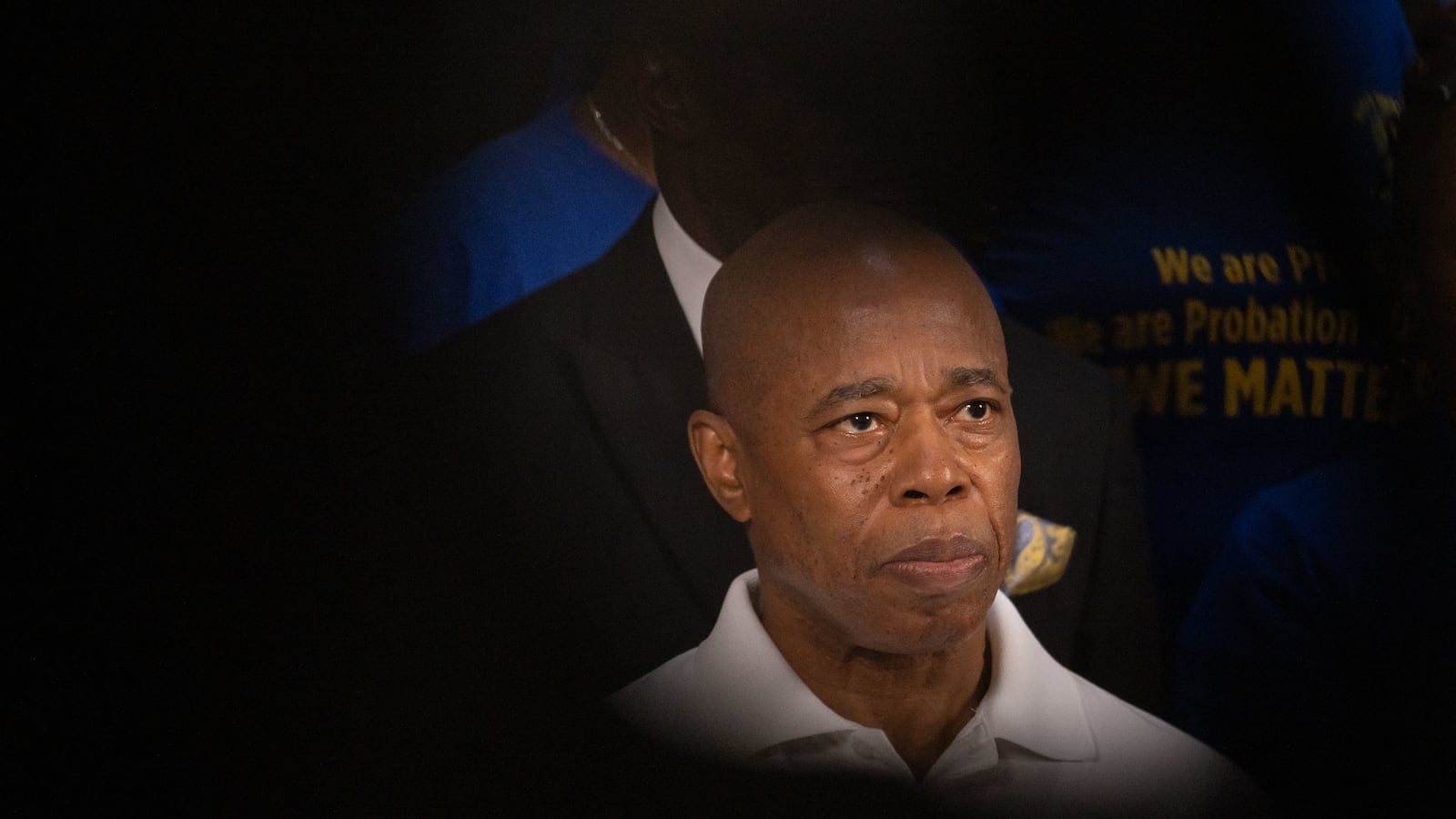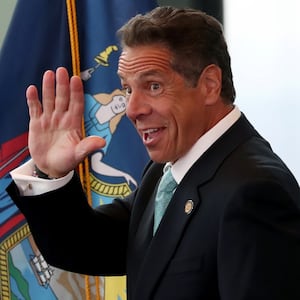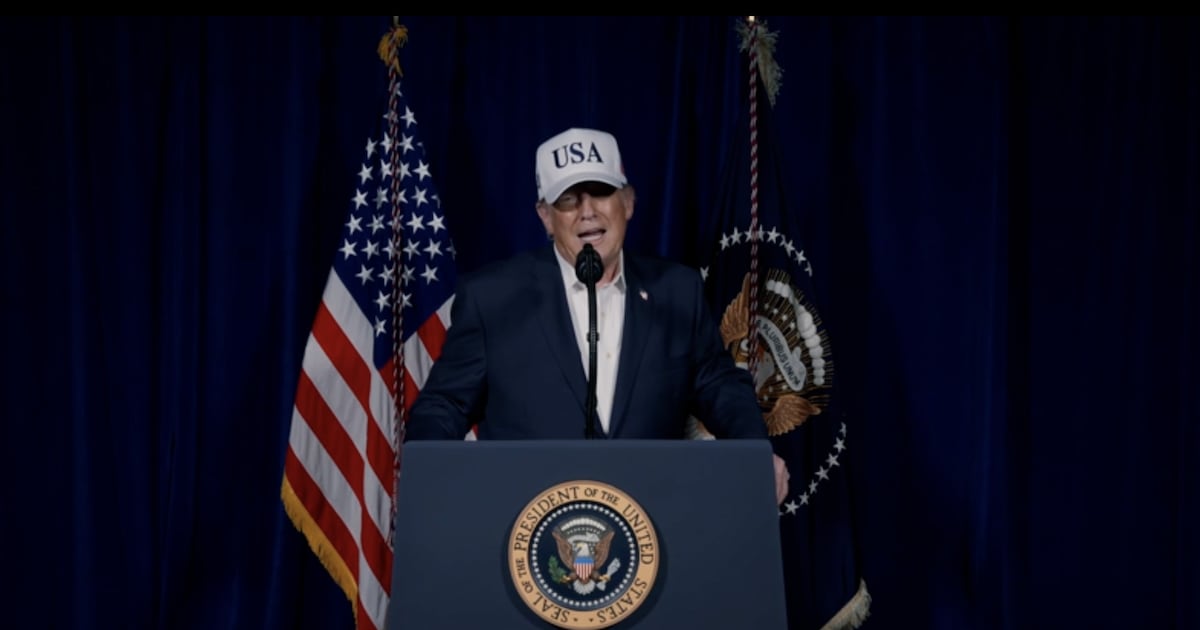Four decades before he made history as New York’s first indicted mayor, Eric Adams became an officer with what was then known as the “Oh” police.
The New York City Transit Police got that nickname because of the response they often received when they sparked interest in a new acquaintance by saying they were a cop, then added they patrolled the decidedly unglamorous subway.
“Oh.”
Some transit cops back in the days when their radios often failed to work underground joked they should really be called the ”Oh s--t” police. That was because they were liable to find themselves confronting a hulking psycho who had just spat in their face on a moving train when any hope for back-up was a half-hour away.
One result of such confrontations was that transit officers, who city police dismissed as “cave cops,” got a lesson in who they really were at their very core. Some took it as a challenge and became determined crime fighters. Adams instead became what some termed a “house mouse,” contriving to spend much of his time in the department’s underground headquarters.
“He was a clerk,” a retired transit cop who made more than 1,000 arrests told the Daily Beast on Thursday. “He was inside. He wasn’t really out there.”
“He was not a real cop,” said another retired transit officer who was as real as they come. “I think he got nine collars. And they’d all be misdemeanors.”
When cops collared a robber or a rapist, they would call it in and Adams would demonstrate his organizational skills while preparing a report at the operations desk. He proved to have a knack with computers when he was assigned to data processing. He also prepared for promotion exams by studying the patrol guide, the penal codes, and the rules of criminal procedure. Test scores alone determined a cop’s rise to sergeant and then lieutenant and then captain.
At the same time, Adams achieved a certain distinction among cave cops as one of the senior members of two associations of Black police officers: The Guardians and 100 Blacks in Law Enforcement Who Care. That helped make him a viable candidate for deputy commissioner for community affairs when onetime top transit cop Bill Bratton became the head of the NYPD in 1994. But the then-mayor, Rudy Giuliani, is said to have deemed Adams to be too close to community activists in Brooklyn.
In 1995 the Transit Police merged with the NYPD, which began to achieve an historic reduction in crime due to the strategic genius of a former cave cop, Deputy Commissioner for Operations Jack Maple. Adams was assigned for a time as a captain in a high-crime Brooklyn precinct and then in low-crime Greenwich Village. His disciplinary record through all his years was clean, save for a single departmental complaint in 2006 for speaking to TV news without authorization.
That same year, Adams retired and made a successful run for state senator in Brooklyn as a Black former cop with social justice cred. He was elected Brooklyn Borough President in 2014 and gave a measure of his self-importance when Rabbi Jacob Goldstein, a longtime community planning board chairman, refused to follow a command to fire a highly regarded manager without cause.
“I’m the Borough President and you do what I tell you,” Goldstein remembers Adams saying.
Adams had ascended from the Oh Police to a certain level of outer borough prominence. But he faced a common problem for politicians: Even though he could consider himself a big shot, he did not have big-shot money. He was able to get a table at a hot restaurant, but there remained the question of the check.
To his manifest delight, he encountered plenty of people who did have big-shot money and were happy to pay. He discovered that there was even the government of a whole country, Turkey, willing to upgrade him to business class when he flew on its national airline. He even managed to get upgrades if he just stopped in Turkey on the way to other destinations.
Of course his Turkish pals were only doing it because they figured he was in a position to help them. And they proved willing to provide him with some of what he knew he needed to keep that position.
“You win the race by raising money. Have to raise money. Everything else is fluff,” he texted a supporter, according to court papers.
He needed much bigger sums when he decided to run for mayor in 2021. Along with Turkish friends he sought out money from anybody who might be willing to kick in. If they were ready to give more than the legal maximum, he allegedly put it in other people’s names. Prosecutors say he also did that with the cash from the Turks, who as foreigners were not allowed to contribute at all.
That way, he allegedly collected enough illegal money to bankroll his campaign as a law-and-order candidate. He won on a promise to make the city safe.
Adams could have hired the best of the best to run the city, but they might have noticed that the people who gave his campaign money occasionally wanted something in return. They might have wondered why he flew into Istanbul on the way to France, even though it’s not on the way. They also might have asked why he was so anxious to have the FDNY set aside its safety concerns regarding Turkey’s new high-rise consulate building in Manhattan. Somebody might have noticed the building was certified for occupancy just before Turkey’s president arrived to open it with a ribbon-cutting ceremony.
Adams instead collected a crew of cronies who said nothing because they did not want anybody asking questions about what they themselves were doing. Many of them were former cops Adams knew from Transit or Brooklyn. They included Phil Banks, who resigned as NYPD chief of department after federal prosecutors named him as an unindicted co-conspirator in a major corruption scandal in 2014. Adams made Banks deputy mayor for public safety, with authority over the police commissioner and the rest of the NYPD. Banks and the rest of Adams’ cronies became the subject of at least three federal investigations.
A fourth investigation focused on Adams himself and the result was an indictment that was unsealed on Thursday. He will be arraigned on Friday morning on charges of bribery, fraud, and soliciting a political contribution from a foreign national. Court papers suggest that as good Adams was at studying the rules as a house mouse, he was not very very skilled at breaking them as the mayor.
One section of the indictment describes his apparent effort to thwart the FBI after agents executed a search warrant for his electronic devices on Nov. 6, 2023.
“Although Adams was carrying several electronic devices, including two cell phones, he was not carrying his personal cell phone, which is the device he used to communicate about the conduct described in this indictment. When Adams produced his personal cell phone the next day in response to a subpoena, it was ‘locked,’ such that the device required a password to open.
“Adams claimed that after he learned about the investigation into his conduct, he changed the password on November 5... and increased the complexity of his password from four digits to six. Adams had done this, he claimed, to prevent members of his staff from inadvertently or intentionally deleting the contents of his phone because, according to Adams, he wished to preserve the contents of his phone due to the investigation.
“But, Adams further claimed, he had forgotten the password he had just set, and thus was unable to provide the FBI with a password that would unlock the phone.”
Oh.







